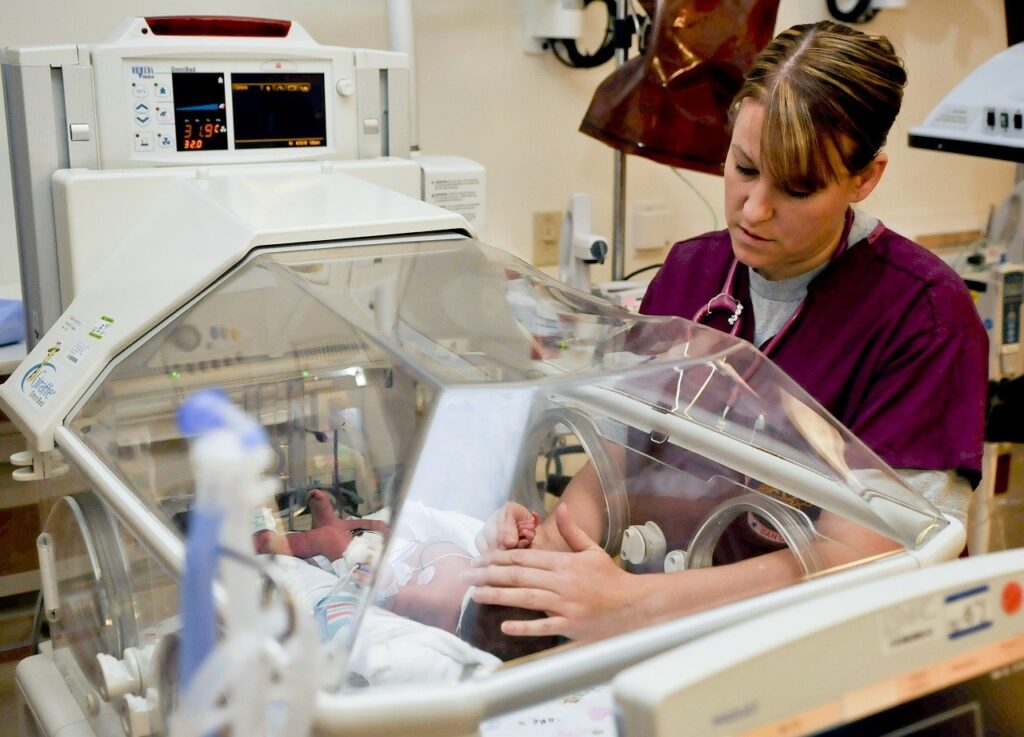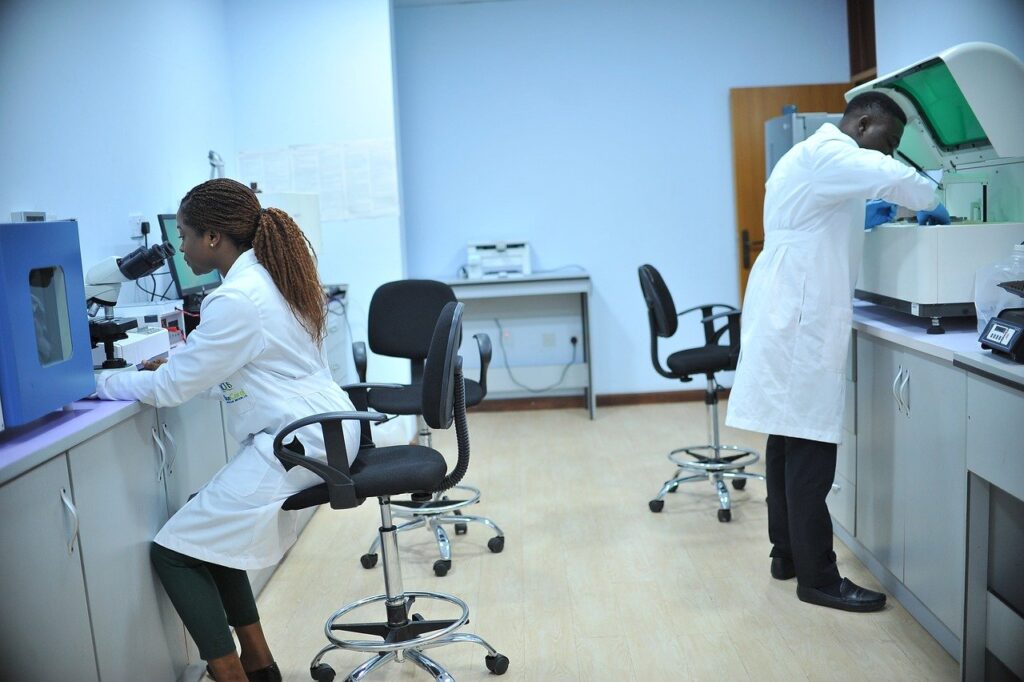Nursing attracts people who are compassionate caregivers. Most people work in nursing because they want to help patients, not because they want to earn a high salary. Still, many nursing specializations pay very well while allowing you to help patients in various ways. However, they often require advanced education or specific certifications. Here are 16 high-paying nursing careers for 2021. We’ll also discuss the qualifications and benefits of these positions.
Certified Registered Nurse Anesthetist
Demand for anesthesiologists is growing in an aging society. Yet medical schools aren’t putting out enough medical doctors in anesthesiology. This is why we’re seeing more certified registered nurse anesthetists.
These earn around $180,000 a year. This is more than twice the average nurse’s salary; the median nursing salary is $73,000 or $35 an hour. CRNAs in the top 10% can earn more than $200,000 a year. For example, CNRAs in the San Francisco area have an average pay of $250,000.
Furthermore, most CNRAs work just forty hours a week, netting a whopping $80 an hour. Demand for CRNAs is expected to grow 45% over the next ten years. They work everywhere, from pain management centers to dentist’s offices and hospitals. On the other hand, they’re working in a medically complicated situation and prone to being sued.
To become a CRNA, you must complete a master’s degree from an accredited program and then pass the National Certification Examination or NCLEX.
Note that a CNRA is not the same thing as a pain management nurse. A pain management nurse earns around $94,000 a year. They may work in oncology units, palliative care, or hospice. They assist doctors in identifying the causes of someone’s pain and provide patient care. They also educate patients on how to safely use the medication they’re prescribed.
Note that you don’t have to have an advanced degree to work as a pain management nurse. However, you’ll need experience as an RN to be considered for the NP certification in this area should you wish to pursue it.
Neonatal Nurse Practitioner
A neonatal nurse practitioner takes care of newborn infants in the nursery. They specialize in taking care of premature or sick infants less than a month old. This means they’re administering oxygen and medication or managing a NICU unit. The average neonatal nurse practitioner earns around $125,000 a year or $50 an hour.

You can work in a neonatal unit as a registered nurse. However, you’ll need a master’s degree in this area to advance your career. Demand for these professionals is expected to grow due to the increased frequency of premature births and overall population growth.
Family Nurse Practitioner
The average nurse practitioner earns roughly $110,000 a year. Those in the top 10% can earn $150,000 a year or more. For example, nurse practitioners in California and Washington State have an average pay rate of over $160,000 a year.
General nurse practitioners are qualified to provide primary care, and they’re free to specialize in a given area. Family nurse practitioners learn how to serve everyone, from children to the elderly, whereas pediatric nurse practitioners learn how to take care of children’s medical needs. Demand for family nurse practitioners or FNPs is expected to grow 45% over the next ten years. The BLS predicts that more than 50,000 NP jobs will be created over the next ten years.
Nurse practitioners must earn at least a master’s degree in this field, after which they can go into a specialization like women’s health. If you’re currently working and are looking for a way to get the credentials, accredited FNP MSN online nurse practitioner programs allow you to go from BSN to FNP while keeping your position. You then must earn the Nurse Practitioner license for your state.
The pay-off for this effort is not just a higher paycheck. It often allows you to work independently in clinics and doctor’s offices. You could work in urgent care centers, private practice, or as a fill-in for doctors.
Certified Nurse Specialists
The clinical nurse specialist or CNS is sometimes known as an intensive care unit nurse. These medical professionals are trained to diagnose and treat various conditions. The average CNS earns $106,000 a year or $52 an hour. They’re in demand because they offer specialized care similar to a doctor in these settings but cost less than a doctor. They also tend to work just forty hours a week.
Note that this job requires you to deal with many stressful situations. You must be able to act quickly and decisively under pressure. Demand for clinical nursing specialists is expected to grow at least as fast as nurses’ overall demand.
To become a Clinical Nurse Specialist, you must complete a Master of Science in Nursing with a clinical nursing specialization.
Psychiatric Nurse Practitioners
Psychiatric nurse practitioners work with psychiatric doctors. They may counsel patients with mental health problems and drug addiction, or they may dispense psychiatric medication. They may work at healthcare facilities or correctional centers.

Psychiatric nurse practitioners earn around $105,000 a year or $52 an hour. The growing appreciation for psychiatric services will increase the demand for psychiatric NPs. That is why one industry journal predicted that demand for psychiatric nurse practitioners would grow 26% over the next few years.
To become a psychiatric nurse practitioner, you need at least a master’s degree in nursing with an emphasis on psychiatric care. Then you need to earn a psychiatric nurse practitioner license in your state.
Cardiac Nurse Practitioner
Cardiac nurse practitioners do in-depth cardiovascular patients; these patients may have a chronic illness or suffer from a sudden change in their condition. They may work in hospitals, rehab facilities, or patient’s homes. We can expect demand for cardiac nurse practitioners to grow as the population ages.
The average salary for a Cardiac Nurse Practitioner is $114,000 a year. The average pay rate is $55 an hour.
The first step to becoming a cardiac nurse practitioner is taking the cardiac nursing exam once you’ve had two years of work experience as a registered nurse.
Orthopedic Nurse Practitioners
Orthopedic nurse practitioners earn around $113,000 a year. The average hourly rate is $54 an hour. They generally assist patients dealing with musculoskeletal injuries or diseases.
They may help patients recover from surgery or during their rehabilitation after an injury. This could be anything from rehab after a hip replacement to recovery after breaking both legs. Demand for orthopedic nurse practitioners is expected to be strong for the foreseeable future.
To become an orthopedic nurse practitioner, you must earn a Master of Science in Nursing and then work more than two thousand hours as an APRN or advanced practice registered nurse. At that point, you can apply to take the certification exam given by the Orthopedic Nurses Certification Board or ONCB.
Nurse Researcher
Nurse researchers work with scientists. They may implement scientific studies or care for patients in said studies. Nurse researchers’ work can improve healthcare services or advance overall medical knowledge. Nurse researchers earn around $95,000 a year. Becoming a nurse researcher requires a doctoral degree.

Demand for medical scientists like nurse researchers is expected to grow 6% over the next ten years.
Clinical Nurse Educator
Clinical nurse educators are also called nursing professional development specialists. Their job is to train nursing professionals in a clinical setting, though they may also teach nursing students who arrive for their first vocational training sessions. They may work for the hospital, keeping nurses informed on the latest technologies and clinical methods, or work for nursing schools to teach new nurses how to do their job.
Their average pay rate is $101,000 a year. Demand for this area is strong since there is significant demand for nurses and those who train them. In this role, you directly impact the care delivered by an entire organization. To become a clinical nurse educator, you need at least a master’s degree in nursing.
Nurse Educators
Nurse educators are nurses who are teaching the next generation of nurses in the classroom. Nurse educators have an average pay rate of $80,000 a year. This job allows you to educate the next generation of nurses.
Becoming a nurse educator requires at least a master’s degree in nursing. Many nurse educators have a doctoral degree in nursing.
Nurse Administrators / Nurse Managers
The average nurse administrator earns $95,000 a year. A nurse administrator is part of the team that oversees nursing staff, rather than simply supervising a few nurses. They will coordinate care and communications between departments and help develop the policies and procedures that nurses must follow. A related job is working as a medical-surgical nurse manager. They oversee medical-surgical teams and nursing teams in a hospital setting. They earn roughly $100,000 a year.
In general, you need a master’s degree in healthcare administration to become a nurse administrator. Demand for nursing administrators and other medical managers is expected to increase by a third over the next ten years.
Nursing Home Administrators
The best nursing home administrators have experience in both healthcare and business management. After all, you’re overseeing many healthcare professionals as well as support staff. Nursing home administrators are responsible for hiring and training staff, paying bills, and guaranteeing proper patient care.
The average pay rate for nursing home administrators is $101,000 a year. There are no special certifications or advanced training necessary to work in this area.
Gerontological Nurse Practitioner
A Gerontological Nurse Practitioner or GNP specializes in the care of the elderly. This is a rapidly growing field given how fast the over 65 population is growing. GNPs are trained in how to treat several long-term and debilitating conditions. They also need to learn how to deal with elderly patients and are likely to face end-of-life issues. The average GNP earns around $95,000 a year.
To become a GNP, you must become a registered nurse and then pass the certification exam given by the Gerontology Nursing Certification Commission.
Oncology Nurse Practitioner
The average oncology nurse practitioner earns around $113,000 a year or $54 an hour. They work closely with doctors and surgeons treating cancer patients. While cancer research is advancing, demand for these skilled nurses isn’t expected to change soon. In fact, with an aging population more prone to cancer, demand is expected to grow for oncology nurse practitioners.
To become an oncology nurse practitioner, you need to earn a master’s degree in this specialty. Then you need to get the necessary certification by passing the oncology nursing certification exam.
Pediatric Nurse Practitioner
A pediatric nurse practitioner is an NP who specializes in treating children. The average pediatric nurse practitioner earns $107,000 a year. This job is a great choice for nurses who want to work with children. You could work in a pediatric office or even run one yourself. However, they often work in urgent care centers and intensive care units, taking care of sick or injured children.
To become a pediatric nurse practitioner, you’ll need to complete a master’s of science in nursing specializing in pediatric care. Then you can take the certification exam offered by the Pediatric Nursing Certification Board.
Demand for pediatric nurse practitioners is expected to grow at a slow but steady rate.
Nurse-Midwives
Instead of assisting the OBGYN during delivery, nurse midwives deliver the children themselves. The average nurse midwife earns $108,000 a year. Those in the top 10% can earn $150,000 a year.
Certified nurse-midwives care for their patients through pregnancy and after delivery. They may also provide genealogical care, such as providing advice on fertility and contraception. Demand for nurse midwives is expected to grow 45% over the next ten years.
To become a nurse-midwife, you must complete a master’s degree in nursing from a program certified by the Accreditation for Midwifery Education or ACME.
Nursing is a career that can be both personally and financially rewarding. Specialization and advanced education will give you the skills you need to provide a higher level of care. Employers will compensate you for your expertise, so make sure that you consider your options.
Featured Image by圆 张on Pixabay
